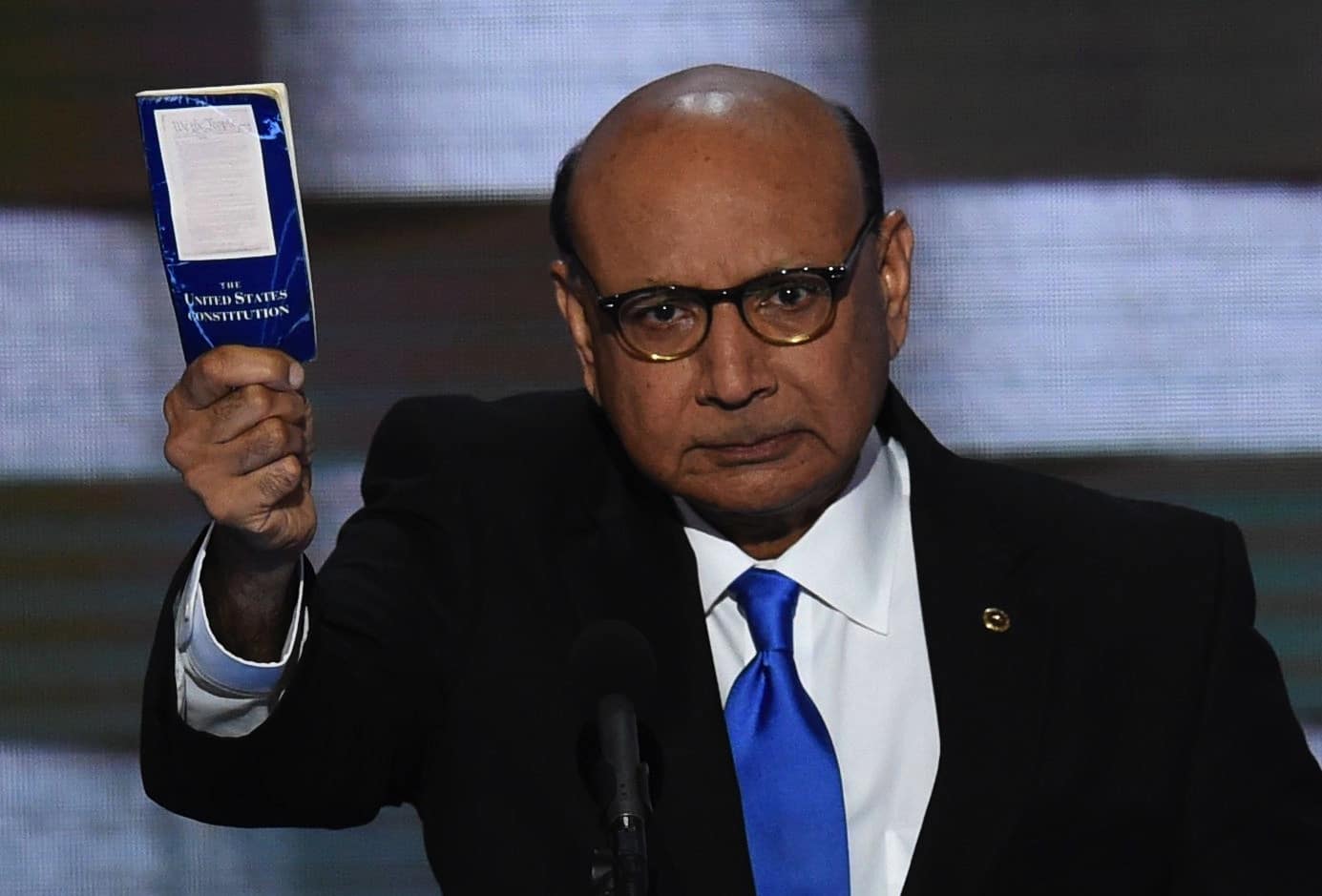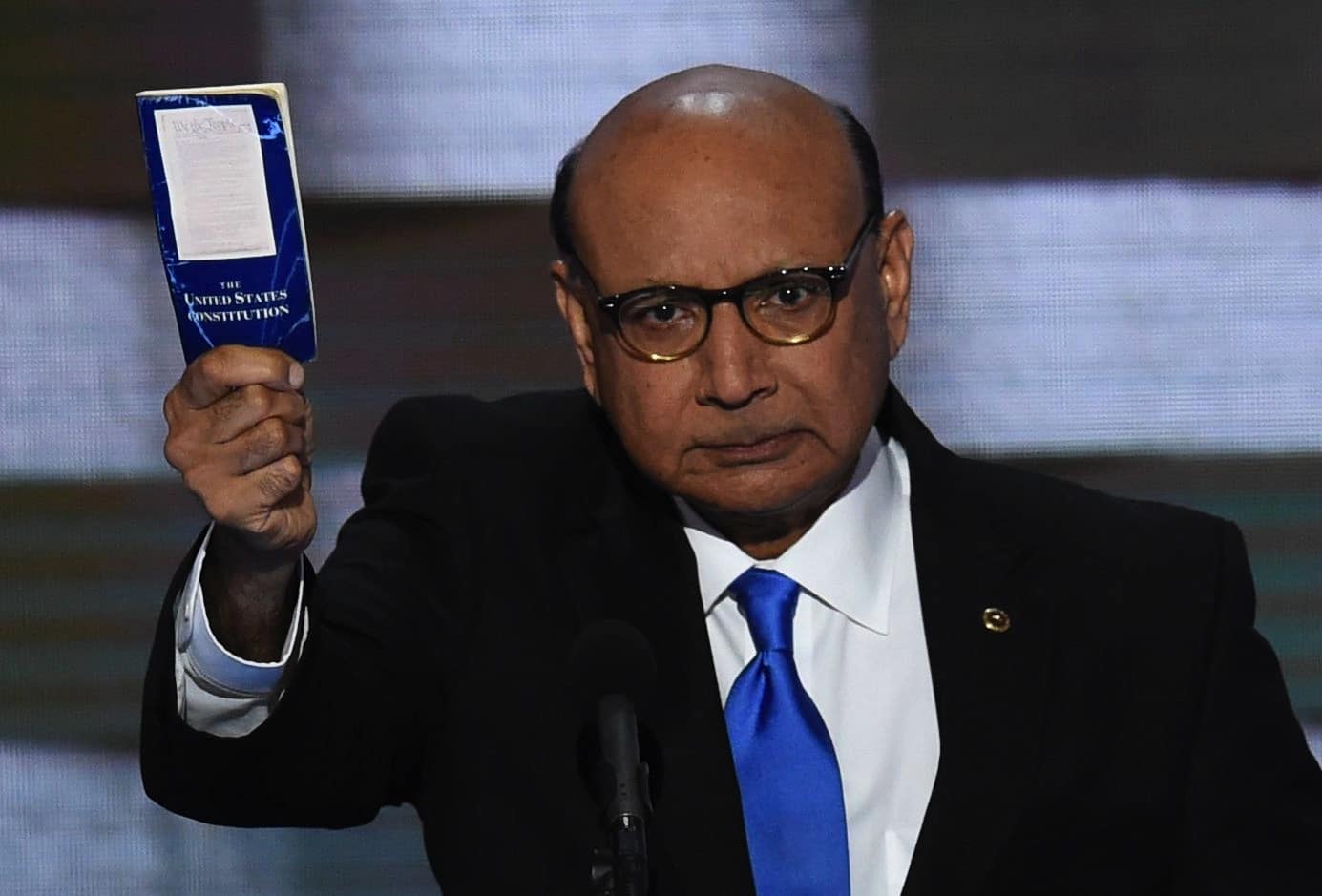Amidst the fury over the exchanges between Donald Trump and Khizr and Ghazala Khan, the couple who lost their son in Iraq, the mainstream media and mainstream political commentators are missing some important elements in the controversy.
In his speech at the Democratic national convention, Khizr Khan asked if Donald Trump had read the Constitution. That question raises a related question, one that arises within the context of the US government’s war on Iraq: What difference does it make whether Trump or anyone else has read the Constitution when the president and the national-security state branch of the federal government don’t comply with it anyway and the federal judiciary doesn’t enforce it against them?
The Constitution is the higher law that the American people have enacted that controls the actions of federal officials, including those in the Pentagon, the CIA, the NSA, and other parts of the national-security state branch of the federal government. When it called the federal government into existence, it set forth the powers it would be permitted to exercise. The Constitution tells the federal government what it can and cannot do.
The Constitution is clear on the matter of war: The president, the Pentagon, and the CIA are prohibited from waging war without a declaration of war from Congress.
There was never a congressional declaration of war against Iraq. That’s important because it means that the US government’s war on Iraq was illegal under our form of government.
Interventionists, including those who defended the US invasion and occupation of Iraq, respond by saying that no president has complied with that provision of the Constitution since the advent of the national-security branch of the federal government in the late 1940s. There was no declaration of war in the Korean War, they point out. Same with the Vietnam War. Same with the invasion of Panama. And Grenada. And Afghanistan. And Iraq. And many others.
But simply because a constitutional provision isn’t being followed and isn’t being enforced by the federal judiciary doesn’t mean it’s nullified. It simply means that the higher law is being repeatedly violated by federal officials. The Constitution does not permit prior violations of the law to be used to ratify more violations of the law.
Supporters of the Iraq War also say that when Congress enacted the authorization to President Bush to wage war on Iraq, that effectively operated as a declaration of war on Iraq. Not so. It simply delegated Congress’s power to declare war to Bush, something that the Constitution does not authorize Congress to do. Notwithstanding the congressional authorization given to Bush, it was legally incumbent, under our form of constitutional government, for Bush to return to Congress to make his case for attacking Iraq by seeking a congressional declaration of war.
Thus, the fact is that under our form of government, the day that US military forces invaded Iraq and began killing the Iraqi people, they were waging an illegal war under our form of constitutional government.
That raises another legal issue, one that the mainstream media and political commentators don’t like to talk about. That issue involves the war crimes trials at Nuremberg after World War II. US prosecutors and judges at Nuremberg prosecuted German officials for the war crime of “waging a war of aggression.” What it means is that when one nation-state attacks another nation-state, it is guilty of the war crime known as “waging a war of aggression.”
The United Nations, where the United States is a member nation, has ratified this principle in its charter which holds that no nation-state has the legal authority to attack another nation-state and if it does, the nation-state that is attacked has the legal right to defend itself from the unlawful aggression against it.
Iraq War supporters say that Iraq was violating UN resolutions by refusing to destroy its WMDs. But UN resolutions are for the UN to enforce, not the US government. When the UN chose not to enforce its WMD resolutions through military force, that decision did not operate as a grant of authority to the US government to invade Iraq.
The mainstream media and mainstream political commentators are saying that Captain Khan was killed by a terrorist. But that’s only because they consider anyone who defends his nation from a US invasion to be a terrorist, even if the invasion is illegal under the US Constitution and the principles set forth at Nuremberg. If it had been, say, Russia that had invaded Iraq, does anyone doubt that the US mainstream media and political commentators would be denouncing Russian forces as aggressors and extolling the Iraqi people for defending themselves from the invaders and occupiers?
The mainstream media and mainstream political commentators are saying that Captain Khan died heroically in Iraq. That might well be. People on both sides of a conflict oftentimes conduct themselves heroically. But one thing that no one can deny is that at the time he was killed, Captain Khan, like other US troops in Iraq, was waging an illegal and unconstitutional undeclared war of aggression against a nation that had never attacked the United States.
Reprinted with permission from the Future of Freedom Foundation.


